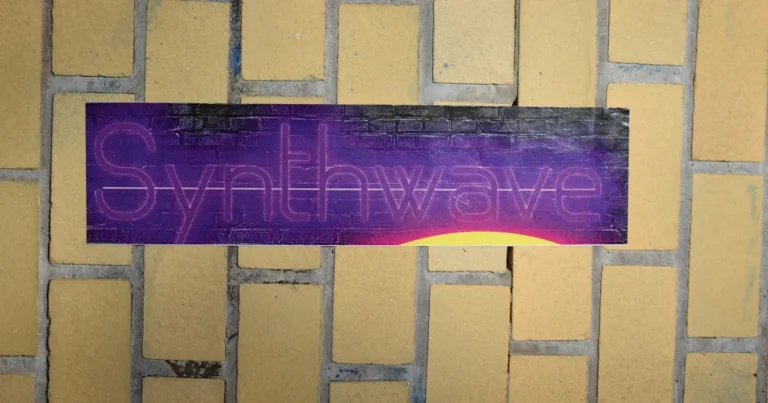Support our educational content for free when you purchase through links on our site. Learn more
25 Powerful Erasure Synonyms You Didn’t Know Existed ✨ (2025)
Have you ever paused to think about the sheer power packed into the word “erasure”? It’s not just about wiping out a mistake or deleting a file—erasure can mean everything from a gentle fading away to total annihilation. Whether you’re a writer hunting for the perfect synonym, a digital warrior wiping data securely, or just a curious synth-pop fan intrigued by the iconic band Erasure, this article is your ultimate guide to the many faces of erasure.
Did you know that in the digital world, simply deleting a file doesn’t truly erase it? It’s a bit like scratching the surface of a vinyl record but leaving the grooves intact. Later, we’ll explore how true erasure works in tech, plus dive into cultural and historical erasure—the kind that shapes societies and memories. And, of course, we’ll pay homage to the synth-pop legends who made “Erasure” a household name. Ready to unlock the full spectrum of erasure synonyms and their fascinating contexts? Let’s dive in!
Key Takeaways
- Erasure covers a wide range of meanings, from physical removal to cultural suppression.
- Choosing the right synonym depends heavily on context and nuance—words like delete, obliterate, and expunge carry very different weights.
- In the digital age, deletion and erasure are not the same; true erasure involves secure overwriting of data.
- Cultural and historical erasure has profound societal impacts, often involving deliberate omission or suppression.
- Synth-pop music, especially the band Erasure, creatively explores themes of absence, silence, and identity—showing that erasure isn’t always about loss, but sometimes about making space for something new.
Table of Contents
- ⚡️ Quick Tips and Facts
- The Art of Vanishing: Unpacking the Concept of Erasure
- 1. Our Top Picks: Essential Synonyms for Erasure – The Ultimate List!
- 1.1. The “Wipe It Clean” Crew: Synonyms for Physical Removal 🧹
- 1.2. The “Make It Disappear” Squad: Synonyms for Abstract or Digital Deletion 👻
- 1.3. The “Never Existed” Brigade: Synonyms for Historical or Cultural Omission 🤫
- 1.4. The “Cancel Culture” Corner: Synonyms for Suppression and Invalidation 🚫
- 1.5. The “Cover-Up” Collective: Synonyms for Concealment and Redaction 🕵️ ♀️
- Beyond the Basics: Nuance, Context, and the Power of Precision ✨
- The Flip Side: Antonyms – What’s the Opposite of Erasure? 🔄
- Erasure in the Digital Age: From Data Deletion to Online Footprints 💾
- Cultural and Historical Erasure: Why Words Matter in Preserving Memory 🌍
- Erasure in Synth Pop™: When Silence Speaks Volumes and Notes Fade Away 🎶
- Common Pitfalls: Misusing Erasure’s Cousins and Avoiding Wordy Woes ❌
- FAQs: Your Burning Questions About Erasure’s Many Faces 🔥
- Conclusion: The Last Word on Vanishing Words 🎤
- Recommended Links: Dive Deeper into the Lexicon 🔗
- Reference Links: Our Sources of Wisdom 📚
⚡️ Quick Tips and Facts
Welcome, synth-heads and word nerds! Before we dive deep into the lexical abyss, let’s get you the highlights. Think of this as the killer synth hook that grabs you before the verse even kicks in.
- What is “Erasure”? At its core, it’s the act of removing or obliterating something. This can be physical (like wiping a whiteboard), digital (deleting a file), or even conceptual (writing someone out of history).
- Top Synonyms: The heavy hitters you’ll see most often are deletion, removal, obliteration, expunging, and cancellation.
- Context is King: The best synonym depends entirely on what you’re erasing and how. You wouldn’t “obliterate” a typo, you’d “delete” it. Nuance matters!
- Digital Deletion vs. Erasure: Here’s a crucial tech tip! Deleting a file often just marks the space as available, but the data can be recovered. True erasure overwrites the data, making it permanently unrecoverable. Big difference!
- Beyond the Dictionary: The concept of erasure extends into heavy cultural topics, like the deliberate removal or suppression of a group’s history or contributions.
- Synth Pop™ Connection: Yes, there’s a legendary synth-pop duo named Erasure! We’ll get to them, don’t you worry. 😉
The Art of Vanishing: Unpacking the Concept of Erasure
Alright, let’s talk about the word at the heart of it all: erasure. It sounds so… final, doesn’t it? Like a synth note fading into perfect, complete silence. The Latin root, eradere, means to “scrape off” or “remove,” which gives you a great visual. It’s the act of making something not be there anymore.
But it’s so much more than just hitting backspace. As the folks at WordHippo point out, it can mean everything from the simple “rubbing out” of a mistake to the complete “annihilation” of something. The first video featured in this article, which you can see at #featured-video, defines it as “The act of removing or obliterating something” and gives two fantastic examples that show its range:
- “The erasure of the data from the hard drive was complete.” (Physical/Digital)
- “Many historians argue that the erasure of certain events from textbooks alters public perception.” (Historical/Conceptual)
This duality is what makes the word so powerful. It operates on both a literal and a metaphorical level. You can have an accidental erasure of your day’s work on a laptop, or a deliberate erasure of your past when you choose not to talk about it. It’s a concept that’s both mundane and profound, and choosing the right synonym is like choosing the right synth patch—it sets the entire mood.
1. Our Top Picks: Essential Synonyms for Erasure – The Ultimate List!
Ready for the main event? We’ve combed through the thesauruses and our own experiences to bring you the ultimate, no-filler list of synonyms for “erasure.” We’ve broken them down by vibe and usage, because as any good producer knows, the little details make all the difference.
1.1. The “Wipe It Clean” Crew: Synonyms for Physical Removal 🧹
These are your hands-on, get-the-job-done words. Think of them as the analog gear of the erasure world—tactile and direct.
- Removal: The most straightforward and neutral term. It’s the simple act of taking something away. Example: “The removal of the stain was successful.”
- Effacement: This one has a slightly more poetic feel. It’s about making something no longer visible, as if fading it from a surface. Example: “The effacement of the graffiti took several hours.”
- Scraping: A more forceful, abrasive term. You can almost hear the noise it makes. Example: “He spent the afternoon scraping paint off the walls.”
- Rubbing out: Just like it sounds, this is for pencil marks and minor mistakes. It’s gentle and corrective. Example: “She was still learning to rub out her mistakes.”
1.2. The “Make It Disappear” Squad: Synonyms for Abstract or Digital Deletion 👻
Welcome to the digital realm! These words are for the things you can’t physically touch, like data, records, or appointments.
- Deletion: The undisputed king of digital removal. It’s the standard term for getting rid of files, emails, or text. Example: “The deletion of the sensitive information was crucial.”
- Expunging / Expunction: This is a more formal, official-sounding word. It’s often used in legal contexts, like removing something from a record permanently. Example: “The court ordered the expunging of the record.”
- Cancellation: Perfect for events, orders, or subscriptions. It implies stopping something that was planned or in progress. Example: “The cancellation of the event was due to bad weather.”
- Omission: This is a passive form of erasure. It’s about leaving something out, whether intentionally or not. Example: “The omission of her name from the list was a clear snub.”
1.3. The “Never Existed” Brigade: Synonyms for Historical or Cultural Omission 🤫
Now we’re getting into the heavy stuff. These words describe the act of removing people, events, or entire cultures from the narrative.
- Obliteration: A powerful and total word. It means to destroy something so completely that no trace is left. Example: “The goal of the campaign was the obliteration of the enemy’s forces.”
- Annihilation: Even stronger than obliteration, this implies complete and utter destruction, reducing something to nothing. Example: “The threat of nuclear annihilation loomed over the world.”
- Eradication: This term suggests rooting something out and destroying it completely, often used for diseases, pests, or social problems. Example: “The program aims for the complete eradication of poverty.”
- Suppression: This is about actively keeping something from being known or seen, like censoring information or silencing voices. Example: “The regime’s suppression of dissent was swift and brutal.”
1.4. The “Cancel Culture” Corner: Synonyms for Suppression and Invalidation 🚫
In today’s world, “erasure” has taken on new meanings related to public figures and social standing. These words capture that modern nuance.
- Invalidation: The act of making something or someone seem worthless or illegitimate.
- Negation: To deny the existence or truth of something.
- Repudiation: The rejection of a proposal or idea, often with disdain.
- Abolition: The formal act of putting an end to a system, practice, or institution.
1.5. The “Cover-Up” Collective: Synonyms for Concealment and Redaction 🕵️ ♀️
Sometimes, erasure isn’t about total destruction, but about hiding specific parts. Think classified documents and corporate secrets.
- Censoring / Bowdlerization: The act of removing parts of a text, film, or work of art that are considered offensive or sensitive.
- Redaction: The official term for blacking out sections of a document before its release.
- Expurgation: A formal word for removing objectionable matter from a text.
Beyond the Basics: Nuance, Context, and the Power of Precision ✨
Phew! That’s a lot of ways to say something is gone. But just like you wouldn’t use a thumping bass drum in a gentle ambient track, you can’t just swap these words willy-nilly. The real artistry is in the nuance.
When to Use What: A Guide to Contextual Choices 🎯
Let’s break it down. Choosing the right word is all about intent and impact. Are you correcting a small error, or are you trying to wipe something from existence?
| Situation | Your Go-To Word | Why It Works | The Synth Pop™ Take |
|---|---|---|---|
| Fixing a typo in an email | Deletion | It’s neutral, digital, and low-stakes. | It’s like editing a single MIDI note. Quick and clean. |
| Removing your name from a mailing list | Removal | Simple, direct, and gets the point across. | Unsubscribing from a band’s newsletter you’re no longer into. |
| A government blacking out text in a report | Redaction | It’s the specific, official term for this action. | Like muting the vocal track to create an instrumental version. |
| Trying to forget a painful memory | Effacement | It’s more poetic and captures the sense of fading. | The long, slow fade-out at the end of a melancholy ballad. |
| Describing a villain’s evil plan | Obliteration / Annihilation | These words convey total, malicious destruction. | The epic, distorted synth explosion in an industrial track. |
| Discussing historical injustices | Suppression / Erasure | These words imply a deliberate, systemic act of silencing. | A forgotten B-side from an influential but overlooked artist. |
The Subtle Art of Erasure: Exploring Connotations and Denotations 🎭
- Denotation is the literal, dictionary definition of a word. “Deletion” and “obliteration” both mean to remove something.
- Connotation is the emotional baggage or cultural association a word carries.
“I deleted the extra photo” feels neutral. “I obliterated the extra photo” feels… aggressive. Did you set the photo on fire? Did you hire a hitman? The connotation is wildly different!
Think about the difference between “omission” and “suppression.” An omission can be an accident—you just forgot. Suppression is always intentional. It’s the difference between a forgotten lyric and a censored one.
The Flip Side: Antonyms – What’s the Opposite of Erasure? 🔄
Every dark, brooding synth line needs a bright, uplifting arpeggio to balance it out. The opposite of taking things away is, of course, putting them there in the first place!
Here are the top antonyms for erasure:
- Creation
- Addition
- Inclusion
- Establishment
- Validation
- Enactment
- Insertion
- Legislation
So while erasure is about making things disappear, its opposites are all about building, validating, and making things official.
Erasure in the Digital Age: From Data Deletion to Online Footprints 💾
Here’s where things get tricky. In our digital world, is anything ever truly gone? As we mentioned in the quick tips, there’s a huge difference between deletion and erasure.
- ✅ Deletion: When you “delete” a file and empty your Recycle Bin or Trash, the operating system usually just removes the pointer to that file. The actual 1s and 0s are still on your hard drive, waiting to be overwritten. This is why data recovery software can often bring “deleted” files back from the dead.
- ❌ Erasure (or Wiping/Shredding): This is the real deal. Secure erasure software overwrites the data with random characters—often multiple times—making it virtually impossible to recover. This is what you need to do before selling or recycling an old computer or hard drive.
Several standards exist for this, like the DoD 5220.22-M (a 3-pass method) or the Gutmann method, which overwrites the data 35 times!
Thinking about wiping a drive? There are many great tools out there.
- DBAN (Darik’s Boot and Nuke): A well-known free tool for wiping entire hard drives. It’s a classic for a reason, though it’s more suited for older HDDs than modern SSDs.
- Blancco Drive Eraser: This is the enterprise-grade evolution of DBAN, offering certified erasure reports, which are crucial for business compliance.
- Active@ KillDisk: A powerful tool that supports numerous erasure standards and can generate certificates of destruction.
- Secure Eraser: A feature-rich option that can securely delete files, folders, and wipe free space.
👉 Shop Data Erasure Software on: Amazon | Walmart
Cultural and Historical Erasure: Why Words Matter in Preserving Memory 🌍
This is perhaps the most critical aspect of “erasure.” It’s the act of deliberately removing, suppressing, or rewriting the history of a group of people. This isn’t about deleting a file; it’s about deleting a heritage.
Historically, this has taken many forms:
- Book Burnings: A visceral act of destroying knowledge and culture, famously used by the Nazi regime in 1933 to erase Jewish and other “un-German” ideas.
- Destruction of Monuments: Throughout history, conquering forces have destroyed the art, temples, and statues of those they defeated to erase their cultural footprint. Think of the Taliban destroying ancient Buddhist statues or the Spanish building churches on top of indigenous holy sites.
- Rewriting Textbooks: Excluding certain events or perspectives from history books can shape the understanding of generations, effectively erasing parts of the past from public memory.
This is a fight over “civic identity,” where removing a statue isn’t just about a piece of stone, but about removing a particular story from the nation-defining narrative. When a society’s art, writing, and oral histories are deleted, it creates a vacuum where stereotypes and falsehoods can grow. It highlights why preserving history, in all its complexity, is so vital.
Erasure in Synth Pop™: When Silence Speaks Volumes and Notes Fade Away 🎶
You didn’t think we’d forget, did you? Let’s bring it back to the music!
First, the obvious: Erasure! The iconic synth-pop duo of Andy Bell and Vince Clarke. Clarke, a founding member of Depeche Mode, is a master of the synth, and Bell’s voice is legendary. Their existence makes this whole topic a beautiful coincidence for us synth fans.
But the concept of “erasure” is also a powerful tool in music production itself. We’re talking about silence.
In a genre like 80s Synth Pop, which can be dense with layers of synthesizers, drum machines, and vocals, the moments where you take things away are often the most impactful. Silence isn’t just the absence of sound; it’s an instrument in its own right.
- Creating Tension: Cutting all the instruments right before the chorus hits? That’s using erasure to build anticipation.
- Adding Dynamics: A sparse verse that “erases” most of the backing track makes the full-sounding chorus feel enormous. Many producers note that using gaps and silence is what elevates a track from amateur to professional.
- Emotional Impact: Think of the space between vocal phrases in a ballad. That silence allows the listener to absorb the lyrics and feel the emotion.
Depeche Mode’s “Enjoy the Silence” is perhaps the ultimate anthem on this topic. The song itself is a testament to the power of quiet in a loud world. Many of the most Iconic Synth Pop Songs master this balance between sound and its deliberate erasure.
Common Pitfalls: Misusing Erasure’s Cousins and Avoiding Wordy Woes ❌
Let’s make sure you walk away from this as a true wordsmith. Here are some common trip-ups to avoid.
-
The Overkill Mistake:
- ❌ “I need to annihilate this typo.” (Woah, calm down there.)
- ✅ “I need to delete this typo.” (Much better.)
-
The Digital vs. Physical Mix-up:
- ❌ “Can you erase that file from the server?” (Technically okay, but “delete” is more common.)
- ✅ “Can you delete that file from the server?” (Standard digital language.)
- ✅ “Please erase the whiteboard.” (Perfect for physical surfaces.)
-
Confusing “Erasure” with “Deletion”:
- ❌ “I just erased the photos from my camera’s memory card, so they’re gone for good.” (Not necessarily! A simple delete is often recoverable.)
- ✅ “I used wiping software to perform a secure erasure of my old hard drive.” (This correctly implies a permanent, secure process.)
FAQs: Your Burning Questions About Erasure’s Many Faces 🔥

1. What’s the main difference between “deletion” and “obliteration”? The main difference is intensity and completeness. “Deletion” is a neutral term for removal, often digital and potentially reversible. “Obliteration” is a strong, violent term implying total destruction, leaving no trace behind.
2. Is it possible to truly erase data from an SSD (Solid-State Drive)? Yes, but it’s more complex than with traditional HDDs. Standard overwriting methods can cause wear and tear on SSDs. Secure erasure for SSDs often involves using the ATA Secure Erase command, which is a function built into the drive itself, or cryptographic erasure, which involves erasing the encryption key, rendering the data unreadable.
3. What is “historical erasure” and why is it controversial? Historical erasure is the act of removing or downplaying the history and contributions of certain groups from the mainstream narrative. It’s controversial because it can distort our understanding of the past, perpetuate harmful stereotypes, and deny marginalized communities their sense of identity and belonging. The debate often centers on whether removing monuments or renaming buildings is “erasing history” or simply reckoning with a more complete and honest version of it.
4. Can I use “expunge” in a casual conversation? You can, but it might sound overly formal. It’s like wearing a tuxedo to a casual get-together. It’s most at home in legal or official contexts. For everyday use, “remove” or “delete” is usually a better fit.
5. Besides the band, is there any other major pop culture reference to “erasure”? Absolutely! The concept is a common theme in dystopian fiction. Think of the “memory holes” in George Orwell’s Nineteen Eighty-Four, where historical records are constantly altered and destroyed to fit the Party’s narrative. This is a perfect example of systematic, political erasure in action.
Conclusion: The Last Word on Vanishing Words 🎤

So, what have we learned on this epic journey through the many faces of erasure? Whether you’re wiping a whiteboard, deleting files, or grappling with the heavy weight of cultural and historical erasure, the word—and its many synonyms—carry power and precision. Choosing the right term is like picking the perfect synth patch: it shapes the entire mood and meaning.
We’ve seen how context is everything. Saying you “obliterated” a typo sounds like you brought in a wrecking ball, while “deletion” keeps it cool and digital. We’ve also uncovered the crucial difference between deleting data and truly erasing it, which is a must-know in our tech-driven world.
And of course, we couldn’t resist diving into the synth-pop realm, where silence and erasure are creative tools as much as words. The band Erasure embodies this beautifully, blending synth magic with themes of presence and absence.
If you’re ever in doubt, remember: erasure isn’t just about what disappears—it’s about what remains in the silence, the gaps, and the stories we choose to tell or omit. Now, go forth and wield your vocabulary like a synth wizard, crafting meaning with every word you erase or restore!
Recommended Links: Dive Deeper into the Lexicon 🔗
Ready to explore or secure your digital erasure? Check out these trusted tools and resources:
- DBAN (Darik’s Boot and Nuke): Amazon | Official Site
- Blancco Drive Eraser: Official Site
- Active@ KillDisk: Amazon | Official Site
- Secure Eraser: Amazon
For those who want to dive into the linguistic and cultural depths:
- The Language Instinct by Steven Pinker — A brilliant exploration of how language shapes thought. Amazon
- Amusing Ourselves to Death by Neil Postman — On how media shapes public discourse, touching on cultural erasure. Amazon
- 1984 by George Orwell — The classic novel featuring “memory holes” and systematic erasure. Amazon
FAQs: Your Burning Questions About Erasure’s Many Faces 🔥

What is a synonym for erase off?
Erase off is a colloquial phrase meaning to remove or delete something completely. Synonyms include wipe out, delete, remove, obliterate, expunge, and efface. The best choice depends on context—wipe out and obliterate imply total destruction, while delete and remove are more neutral and commonly used in digital contexts.
What is the word for cultural erasure?
Cultural erasure refers to the systematic removal or suppression of a group’s cultural identity, history, or contributions. Terms closely related include suppression, obliteration, marginalization, and historical revisionism. This erasure can occur through censorship, rewriting history, or destroying cultural artifacts. It’s a serious issue with lasting social impacts.
Read more about “How to Pronounce “Erasure” Like a Synth-Pop Pro 🎤”
What is the synonym for erase?
The most common synonyms for erase are delete, remove, wipe out, obliterate, expunge, and efface. Each carries a slightly different nuance:
- Delete: Often digital or textual removal.
- Remove: General, neutral term.
- Wipe out / Obliterate: Total destruction.
- Expunge: Formal, often legal removal.
- Efface: To make something fade or vanish, often gently.
What are common synonyms for erasure in music production?
In music production, especially in synth pop, erasure can mean removing or muting parts of a track to create space or tension. Synonyms or related terms include:
- Mute
- Cut
- Fade out
- Silence
- Drop out
- Filter sweep (removing frequencies)
- Automation (volume or effect removal)
These techniques are essential for dynamics and emotional impact.
How does the term erasure relate to synth pop music?
In synth pop, erasure is both literal and metaphorical. Literally, it can mean muting or removing sounds to create space and tension. Metaphorically, it relates to themes of absence, loss, and identity, which many synth pop artists explore. The band Erasure itself embodies this duality, blending catchy synth melodies with lyrics about love, loss, and presence.
Read more about “Synth Pop Uncovered: 25 Essential Tracks & Secrets 🎹 (2025)”
What words describe the concept of erasure in song lyrics?
Song lyrics often use words like vanish, fade, disappear, wipe away, blot out, and erase to convey erasure. These words evoke feelings of loss, forgetting, or intentional removal, which can be emotional or political. For example, synth pop ballads might use “fade” or “disappear” to express heartbreak or memory loss.
Can erasure be used metaphorically in synth pop songwriting?
Absolutely! Synth pop often deals with themes of identity, memory, and emotional distance. Erasure as a metaphor can represent forgetting a love, losing oneself, or societal invisibility. The genre’s electronic textures and use of silence make it a perfect sonic canvas for exploring these themes.
What are alternative terms for erasure in electronic music?
In electronic music production, alternative terms related to erasure include:
- Cutting
- Muting
- Gating
- Automation off
- Editing out
- Sampling removal
These describe the process of removing or silencing parts of a track to shape the sound.
Read more about “Why is Synthwave So Popular? Discover 10 Fascinating Reasons! 🎶”
How do synth pop artists incorporate themes of erasure?
Synth pop artists incorporate erasure by using:
- Lyrical themes about loss, forgetting, or invisibility.
- Production techniques like silence, muting, and fade-outs.
- Conceptual storytelling that explores absence or erasure of identity.
- Visual aesthetics that emphasize minimalism or fading imagery.
Artists like Depeche Mode, Erasure, and Pet Shop Boys have all touched on these themes in their work.
Read more about “The Erasure Word Uncovered: 7 Surprising Meanings & Uses 🎤 (2025)”
What is the connection between erasure and the band Erasure?
The band Erasure took their name as a nod to the idea of removing old musical conventions and creating something fresh and electronic. Their music often explores themes of love, identity, and emotional presence, sometimes touching on absence and loss—themes that resonate with the concept of erasure. They are a cornerstone of 80s Synth Pop and continue to influence electronic music today.
Read more about “What Is the Meaning of “A Little Respect” by Erasure? 🎵”
Reference Links: Our Sources of Wisdom 📚
For further reading and verification, check out these reputable sources:
- WordHippo: What is another word for erasure?
- Thesaurus.com: Erasure Synonyms
- DBAN Official Site
- Blancco Official Site
- Active@ KillDisk Official Site
- Merriam-Webster Dictionary
- Synth Pop™ Erasure Feature
- Synth Pop™ 80s Synth Pop Category
- Synth Pop™ Iconic Synth Pop Songs
Enjoy your newfound mastery of erasure and its many shades! 🎹✨






